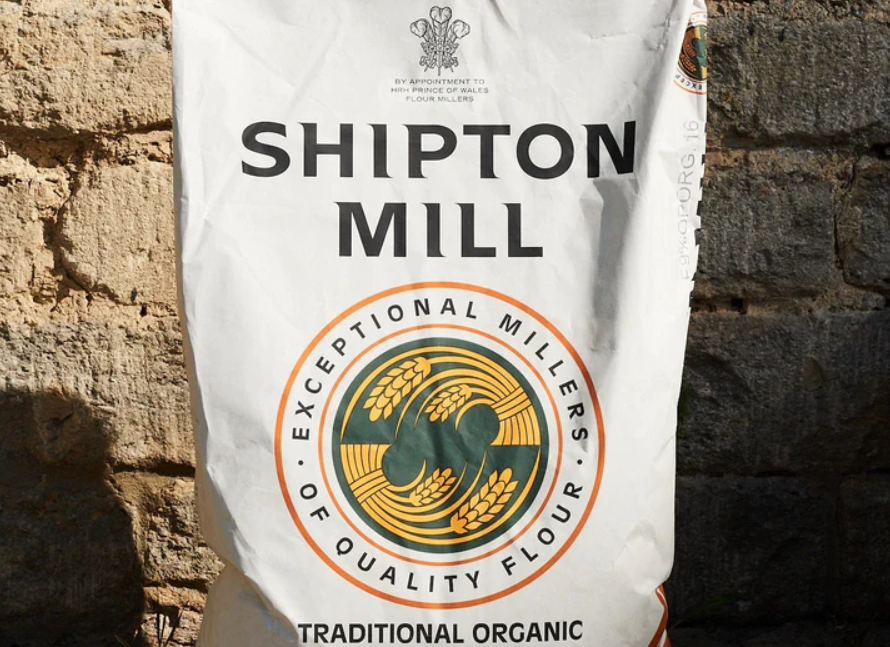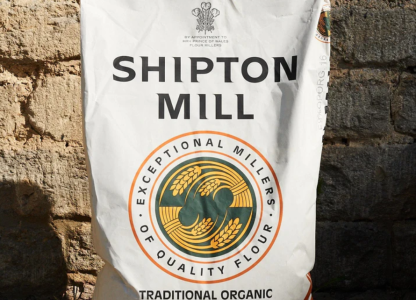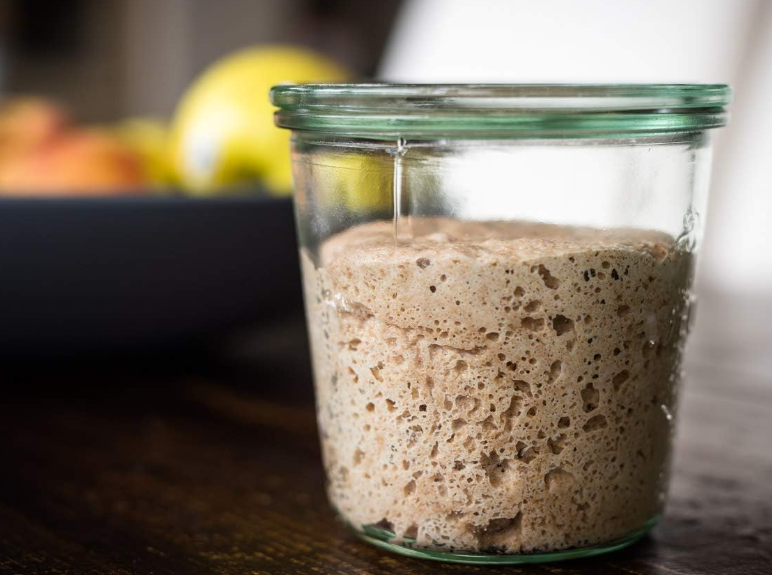Good sourdough starts with good flour.
Vanessa Kimbell
There are book chapters written on sourdough flour. Sourdough enthusiasts fascinate about flour in much the same way as wine enthusiasts fascinate about grape varieties.
Here is what I have learnt about flour
- Select your sourdough starter flour carefully. Good sourdough begins with an active, reliable starter.
- Organic and a mixture of wholegrain and white wheat flour (wholegrain contains more microbes).
- Get to know your flour – stick with it for a good while, a good number of bakes. Get to know how it feels, how it responds to water, to mixing, to strengthening.
- Know the protein content.
- The choice of flour really does effect everything, the starter, mix, bake, flavour, crust, crumb, texture and rise.
Is organic flour essential?
Cards on the table, I baked my first dozen sourdough loaves with very affordable Aldi bread flour. I baked a good handful of great looking, great tasting sourdoughs and as many sourdough fails. Sourdough success and failure, ‘hopeful endeavour,’ is part and parcel of the experience.
To be clear, organic flour is technically not required to bake great looking, great tasting sourdough. However, research has found that flour microbiota produced sourdough that is superior in terms of volume, crumb structure and crust colour.
Organic flour, with fewer chemicals interventions and fewer artificial fertilisers, means more microbes in the flour.
Which organic flour?
After a little research, I bought a large sack of Shipton Mills #04 organic flour, more out of curiosity than anything else. Price wise, #04 just shy or a 95p per kilo vs Aldi Strong White Bread Flour 70p per kilo. Flour is best used somewhat fresh, so bear that in mind too.
Did organic flour make me an artisan sourdough baker?
The answer to that is very simple. No.
My initial observations and experiences supported the general sourdough commentary. The organic flour sourdough starter was more responsive, with more and larger bubbles. The organic flour handled differently, it was more elastic, sooner. Could I honestly tell you that I could taste a more “complex” flavour? Smell a “fruitier more rounded” aroma? No. However I will say the crust was perhaps – crustier.
As before, baking success was soon followed by semi-successful bakes.
As for other flours…
Rather like roses in the garden, grain comes in many different varieties, all of which will have different perfumes, flavours and textures.
Vanessa Kimbell
I will be honest. Even after thirty or more bakes, I am still getting to know the Aldi and #04 flour. I will be stopping right here for quite a while longer in an effort to get to know these flours better.
Rye, spelt and einkorn, all in good time.



